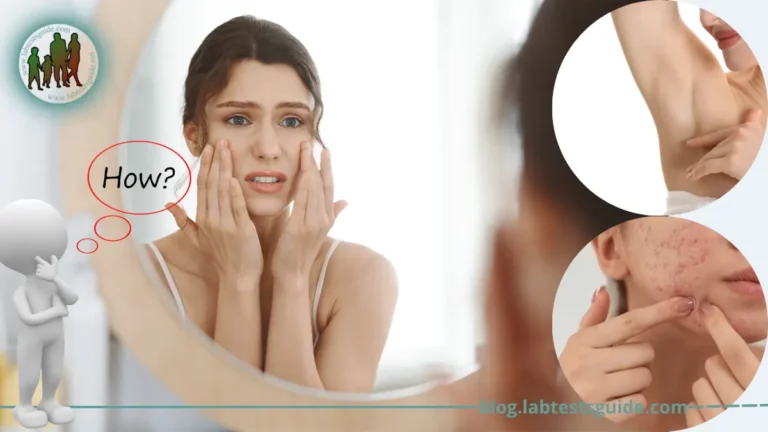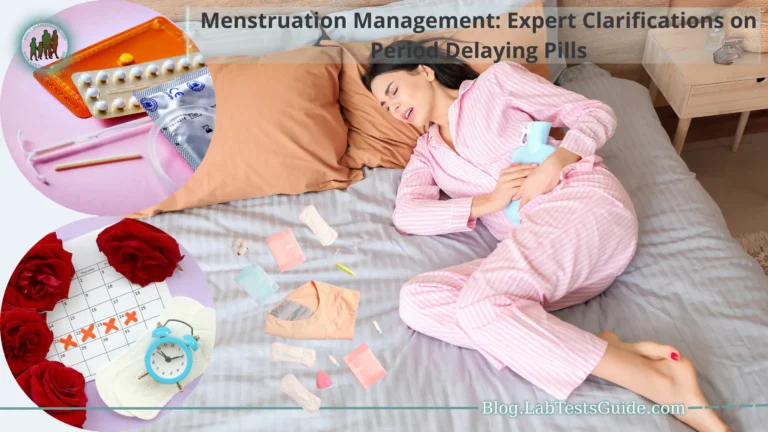Natural remedies for common ailments in girls include using heating pads or warm baths for menstrual cramps, applying tea tree oil or using honey and cinnamon masks for acne, practicing deep breathing exercises or using essential oils like lavender for stress and anxiety relief, and maintaining a balanced diet, hydration, and sufficient sleep for overall well-being. However, it’s essential to consult with a healthcare professional for a proper diagnosis and personalized advice.

In this guide, we will explore a range of common ailments that girls may experience and provide natural remedies to help manage them. It’s important to note that while these remedies can be effective, they may not work for everyone, and individual experiences may vary. If symptoms persist or worsen, it is always advisable to seek professional medical advice.
By incorporating these natural remedies into their routine, girls can take a proactive approach to their health, finding relief from common ailments while minimizing the potential side effects of pharmaceutical interventions. Remember, each person’s body is unique, so it may be necessary to try different remedies and approaches to find what works best for you. Let’s dive into the world of natural remedies for common ailments in girls and discover how to nurture health and well-being using nature’s offerings.
Menstrual cramps:
Here are some natural remedies to consider.
- Heat therapy: Applying a heating pad or a hot water bottle to the lower abdomen can help relax the muscles and reduce cramping. Taking a warm bath or using a warm towel can also provide soothing relief.
- Herbal teas: Certain herbal teas have properties that can ease menstrual cramps. Chamomile tea, ginger tea, and peppermint tea are known for their anti-inflammatory and antispasmodic effects. Drinking these teas during your period may help reduce cramping.
- Exercise: Engaging in light exercise, such as walking or gentle stretching, can help increase blood circulation and release endorphins, which are natural painkillers. Regular exercise throughout the menstrual cycle can also help alleviate cramps over time.
- Dietary adjustments: Consuming a balanced diet rich in fruits, vegetables, whole grains, and lean proteins can support overall hormonal balance and reduce inflammation. Avoiding processed foods, caffeine, and excess salt may also help alleviate menstrual cramps.
- Herbal supplements: Certain herbal supplements like evening primrose oil, ginger capsules, or magnesium supplements have been reported to provide relief from menstrual cramps. However, it’s important to consult with a healthcare professional before starting any new supplements.
- Stress management: High levels of stress can exacerbate menstrual cramps. Practicing relaxation techniques such as deep breathing exercises, meditation, or yoga can help reduce stress and promote relaxation, thereby easing cramping.
Remember, every individual is different, and what works for one person may not work for another. It may be necessary to try different remedies or a combination of approaches to find what provides the most relief. If menstrual cramps are severe, persistent, or significantly impact daily activities, it is advisable to seek medical advice from a healthcare professional for further evaluation and guidance.
Menstrual irregularities:
Here are a few remedies to consider.
- Maintain a healthy lifestyle: Adopting a healthy lifestyle can have a positive impact on menstrual regularity. Eat a balanced diet rich in fruits, vegetables, whole grains, and lean proteins. Regular exercise can also help regulate hormone levels and promote overall well-being. Aim for at least 30 minutes of moderate-intensity exercise most days of the week.
- Manage stress: Stress can disrupt hormonal balance and affect the menstrual cycle. Incorporate stress management techniques such as relaxation exercises, deep breathing, meditation, yoga, or engaging in hobbies and activities you enjoy. Getting enough restful sleep is also important for managing stress and supporting hormonal balance.
- Herbal remedies: Certain herbs have been traditionally used to support menstrual health and regulate the menstrual cycle. Examples include chasteberry (Vitex agnus-castus), dong quai, black cohosh, and raspberry leaf. These herbs are available in the form of teas, capsules, or tinctures. However, it’s important to consult with a healthcare professional before using herbal remedies, especially if you have any underlying health conditions or take medications.
- Maintain a healthy weight: Both excessive weight loss and obesity can disrupt the menstrual cycle. Maintaining a healthy weight through a balanced diet and regular exercise can help promote hormonal balance and regular periods. If you suspect that weight changes may be affecting your menstrual cycle, consider consulting with a healthcare professional or a registered dietitian for guidance.
- Acupuncture: Acupuncture, a traditional Chinese medicine practice, involves the insertion of thin needles into specific points of the body. It has been used to help regulate menstrual cycles and manage menstrual irregularities. If you’re interested in trying acupuncture, seek a qualified acupuncturist experienced in treating menstrual issues.
- Seed cycling: Seed cycling involves consuming specific seeds during different phases of the menstrual cycle to promote hormonal balance. During the first half of the cycle (follicular phase), consume flaxseeds and pumpkin seeds, while during the second half (luteal phase), consume sesame seeds and sunflower seeds. Although evidence supporting seed cycling is anecdotal, some individuals report positive effects on their menstrual cycle.
It’s important to remember that natural remedies may not be suitable for everyone, and their effectiveness can vary depending on the underlying cause of menstrual irregularities. If you are experiencing persistent or severe menstrual irregularities, it’s recommended to seek medical advice for a proper evaluation and personalized treatment plan. A healthcare professional can help identify the underlying cause and provide appropriate guidance for managing menstrual irregularities effectively.
Acne Problem:
Here are some natural remedies to consider.
- Proper cleansing: Gently wash your face twice a day using a mild, non-comedogenic cleanser to remove excess oil, dirt, and impurities. Avoid scrubbing too harshly, as it can irritate the skin and worsen acne.
- Tea tree oil: Tea tree oil has natural antimicrobial properties that can help kill acne-causing bacteria. Dilute tea tree oil with a carrier oil, such as jojoba oil or coconut oil, and apply it to the affected areas using a cotton swab. Avoid applying undiluted tea tree oil directly to the skin, as it may cause irritation.
- Apple cider vinegar: Dilute apple cider vinegar with water in a 1:1 ratio and use it as a toner by applying it to the skin with a cotton pad. Apple cider vinegar helps balance the pH of the skin and has antimicrobial properties that can reduce acne.
- Honey and cinnamon mask: Mix raw honey and cinnamon powder to form a paste and apply it to the face as a mask. Leave it on for 10-15 minutes, then rinse with warm water. Honey has antibacterial properties, while cinnamon has anti-inflammatory effects, making this combination beneficial for acne-prone skin.
- Aloe vera: Apply pure aloe vera gel directly to the affected areas. Aloe vera has soothing and anti-inflammatory properties that can help reduce redness and inflammation associated with acne.
- Dietary adjustments: Eating a balanced diet rich in fruits, vegetables, whole grains, and lean proteins can support overall skin health. Avoiding greasy, sugary, and processed foods may also help reduce acne breakouts. Drinking plenty of water and staying hydrated is essential for maintaining healthy skin.
- Stress management: Stress can contribute to acne breakouts. Engage in stress-reducing activities such as exercise, meditation, or yoga to help manage stress levels and promote overall well-being.
It’s important to note that natural remedies may take time to show results and may not work for everyone. If acne is severe, persistent, or causing emotional distress, it is recommended to consult with a dermatologist or healthcare professional for personalized advice and treatment options.
PMS symptoms:
Here are some natural remedies for PMS symptoms.
- Dietary adjustments: Eating a well-balanced diet can have a positive impact on PMS symptoms. Increase your intake of complex carbohydrates, such as whole grains, fruits, and vegetables, while reducing your consumption of refined sugars and processed foods. Additionally, increasing your intake of foods rich in calcium, magnesium, and vitamin B6, such as leafy greens, nuts, seeds, and legumes, may help alleviate symptoms.
- Herbal teas: Certain herbal teas have properties that can help reduce PMS symptoms. Peppermint tea and chamomile tea can have calming effects and relieve bloating and irritability. Ginger tea may help alleviate nausea and cramps.
- Exercise: Regular physical activity can help improve mood and reduce physical discomfort associated with PMS. Engage in activities you enjoy, such as walking, jogging, swimming, or yoga, for at least 30 minutes a day.
- Stress management: Stress can exacerbate PMS symptoms. Engage in stress-reducing activities such as deep breathing exercises, meditation, or mindfulness practices. Consider incorporating relaxation techniques, such as taking warm baths or practicing gentle stretching, into your routine.
- Supplements: Certain supplements may help alleviate PMS symptoms. For example, calcium and magnesium supplements have been shown to reduce symptoms like mood swings, bloating, and breast tenderness. However, it’s essential to consult with a healthcare professional before starting any new supplements to determine the appropriate dosage and ensure they won’t interfere with any existing medications or conditions.
- Sleep and rest: Prioritize getting enough sleep and rest during the PMS phase. Aim for 7-9 hours of quality sleep each night. Create a relaxing bedtime routine and ensure your sleep environment is comfortable and conducive to restful sleep.
- Acupuncture or acupressure: Some individuals find relief from PMS symptoms through acupuncture or acupressure. These practices involve stimulating specific points on the body to promote balance and alleviate symptoms. Consult with a qualified practitioner to explore this option.
Remember, each person’s experience with PMS is unique, and what works for one individual may not work for another. If your PMS symptoms are severe, significantly impacting your daily life, or interfering with your overall well-being, it’s important to consult with a healthcare professional for further evaluation and guidance.
Urinary tract infection (UTI):
Here are some natural remedies for UTIs.
- Increase fluid intake: Drinking plenty of water and staying hydrated helps flush out bacteria from the urinary tract. Aim to drink at least 8 glasses of water per day to promote urine flow and reduce the risk of infection.
- Cranberry products: Unsweetened cranberry juice, cranberry supplements, or cranberry extract tablets can help prevent and manage UTIs. Cranberries contain compounds that prevent bacteria from adhering to the urinary tract walls, reducing the risk of infection. However, it’s important to note that cranberry products are not a substitute for medical treatment and should be used as a complementary approach.
- Probiotics: Probiotics are beneficial bacteria that promote a healthy balance of microorganisms in the body. Consuming probiotic-rich foods, such as yogurt with live cultures, or taking probiotic supplements may help support the natural defense mechanisms of the urinary tract and reduce the risk of UTIs.
- Vitamin C: Vitamin C is known for its immune-boosting properties and its ability to acidify urine, creating an unfavorable environment for bacteria. Increase your intake of vitamin C-rich foods, such as citrus fruits, strawberries, and bell peppers, or consider taking a vitamin C supplement after consulting with a healthcare professional.
- D-Mannose: D-Mannose is a type of sugar that can help prevent the adherence of bacteria to the urinary tract walls, reducing the risk of UTIs. It is available as a supplement and can be taken as a preventive measure or alongside antibiotic treatment, under the guidance of a healthcare professional.
- Herbal remedies: Certain herbs, such as uva-ursi, goldenseal, and buchu leaf, have natural antimicrobial properties and may be used as part of a comprehensive approach to UTI management. However, it’s important to consult with a healthcare professional before using herbal remedies, as they may interact with medications or have contraindications.
It’s crucial to remember that if you suspect you have a UTI, it’s important to seek medical attention for proper diagnosis and treatment. Natural remedies can be used as complementary measures but should not replace medical intervention, especially if symptoms are severe, persist, or worsen
Headaches:
Here are some natural remedies to consider.
- Apply a cold or warm compress: Placing a cold or warm compress on the forehead or the back of the neck can help soothe headache pain. Experiment with both cold and warm temperatures to see which provides more relief for you.
- Practice relaxation techniques: Stress and tension can contribute to headaches. Engaging in relaxation techniques such as deep breathing exercises, progressive muscle relaxation, or meditation can help relax the body and alleviate headache symptoms.
- Massage: Gently massaging the temples, neck, and shoulders can help relieve tension and reduce headache pain. You can use your fingers to apply gentle pressure or consider using essential oils like lavender or peppermint oil for added relaxation benefits.
- Stay hydrated: Dehydration can often trigger or exacerbate headaches. Make sure to drink plenty of water throughout the day to stay hydrated and prevent headaches associated with dehydration.
- Manage your environment: Bright lights, loud noises, and strong odors can sometimes trigger headaches. If you’re prone to headaches, try to create a calm and soothing environment by dimming lights, reducing noise levels, and avoiding strong smells.
- Herbal remedies: Some herbs have properties that may help alleviate headaches. Peppermint, lavender, chamomile, and ginger are known for their soothing and pain-relieving effects. You can drink herbal teas containing these herbs or use their essential oils for aromatherapy.
- Adequate rest and sleep: Lack of sleep or poor sleep quality can contribute to headaches. Ensure you’re getting enough restful sleep each night and establish a consistent sleep routine to promote overall well-being and reduce the frequency of headaches.
It’s important to note that while these natural remedies can provide relief for occasional headaches, if you experience severe or chronic headaches, it’s advisable to seek medical advice for proper diagnosis and treatment. A healthcare professional can help identify any underlying causes and provide appropriate guidance to manage your headaches effectively.
Yeast infections:
Yeast infections, also known as vaginal candidiasis or vaginal thrush, are fungal infections that can occur in the vaginal area. They are commonly caused by an overgrowth of Candida albicans, a type of yeast that naturally resides in the vagina. Yeast infections can cause symptoms such as itching, redness, swelling, vaginal discharge, and discomfort during urination or sexual intercourse. While over-the-counter antifungal medications are often used to treat yeast infections, there are also natural remedies that can help alleviate symptoms and support vaginal health. Here are some natural remedies to consider.
- Probiotics: Probiotics are beneficial bacteria that can help restore the natural balance of microorganisms in the vagina. Consuming probiotic-rich foods, such as yogurt with live cultures or kefir, or taking probiotic supplements specifically designed for vaginal health may help prevent and manage yeast infections.
- Tea tree oil: Tea tree oil has natural antifungal properties that can help combat yeast infections. Dilute a few drops of tea tree oil with a carrier oil, such as coconut oil or almond oil, and apply it to the affected area. It’s important to note that tea tree oil can be irritating to the skin for some individuals, so it’s advisable to do a patch test and discontinue use if any irritation occurs.
- Garlic: Garlic has antimicrobial and antifungal properties that can help fight yeast infections. You can consume raw garlic cloves or take garlic supplements. Some individuals also insert a peeled garlic clove into the vagina overnight for relief, but it’s important to consult with a healthcare professional before trying this method.
- Coconut oil: Coconut oil has antifungal properties and can provide relief from yeast infection symptoms. Apply organic, virgin coconut oil to the affected area to soothe itching and discomfort. However, it’s essential to note that coconut oil is not a substitute for medical treatment and should be used as a complementary approach.
- Aloe vera: Aloe vera gel has soothing and anti-inflammatory properties that may help alleviate yeast infection symptoms. Apply pure aloe vera gel to the affected area for relief. Ensure that the aloe vera gel is pure and free from any added ingredients or fragrances.
- Dietary adjustments: Maintaining a healthy diet that is low in sugar and refined carbohydrates may help prevent yeast infections. These types of foods can contribute to the overgrowth of yeast. Instead, opt for a diet rich in whole grains, fresh fruits and vegetables, and lean proteins.
It’s important to note that if you suspect you have a yeast infection, it’s recommended to seek medical attention for proper diagnosis and treatment. Natural remedies can be used as complementary measures but should not replace medical intervention, especially if symptoms are severe, persistent, or recurring. A healthcare professional can provide appropriate guidance based on your specific situation.
Insomnia:
Here are some natural remedies to consider for managing insomnia.
- Establish a consistent sleep routine: Establish a regular sleep schedule by going to bed and waking up at the same time every day, even on weekends. This helps regulate your body’s internal clock and promotes better sleep.
- Create a sleep-friendly environment: Make your bedroom a comfortable and relaxing sleep environment. Ensure the room is dark, quiet, and at a cool temperature. Consider using earplugs, eye shades, or white noise machines to block out disturbances that may interfere with your sleep.
- Limit electronic devices before bedtime: The blue light emitted by electronic devices like smartphones, tablets, and computers can interfere with your sleep-wake cycle. Avoid using these devices for at least an hour before bedtime or use blue light filters or apps that reduce blue light emission.
- Practice relaxation techniques: Engage in relaxation techniques such as deep breathing exercises, progressive muscle relaxation, meditation, or guided imagery to help calm the mind and prepare for sleep. These techniques can help reduce stress and anxiety that may contribute to insomnia.
- Avoid stimulating substances: Limit or avoid the consumption of stimulants such as caffeine, nicotine, and alcohol, especially close to bedtime. These substances can interfere with sleep quality and make it harder to fall asleep.
- Regular exercise: Engaging in regular physical activity, preferably earlier in the day, can help promote better sleep. Aim for at least 30 minutes of moderate-intensity exercise most days of the week. However, avoid vigorous exercise close to bedtime, as it may increase alertness and make it harder to fall asleep.
- Herbal remedies: Certain herbs, such as valerian root, chamomile, passionflower, or lavender, have calming properties that may aid in better sleep. You can consume them in the form of herbal teas, supplements, or aromatherapy. However, it’s important to consult with a healthcare professional before using herbal remedies, especially if you have any underlying health conditions or take medications.
- Cognitive-behavioral therapy for insomnia (CBT-I): Consider seeking help from a healthcare professional trained in CBT-I, a type of therapy that addresses the thoughts, behaviors, and habits associated with insomnia. CBT-I can be an effective long-term treatment for insomnia.
If you are experiencing chronic or severe insomnia that significantly impacts your daily life, it’s important to consult with a healthcare professional for a proper evaluation and personalized treatment plan. They can help identify any underlying causes and provide appropriate guidance to manage your insomnia effectively.
Digestive issues:
Here are some natural remedies to consider for managing digestive issues.
- Dietary adjustments: Pay attention to your diet and make adjustments to promote better digestion. Increase your intake of fiber-rich foods such as fruits, vegetables, whole grains, and legumes to support regular bowel movements. Avoid or reduce consumption of foods that may trigger digestive issues, such as spicy foods, fatty foods, caffeine, alcohol, and processed foods. Keep a food diary to identify potential food triggers and adjust your diet accordingly.
- Stay hydrated: Drinking an adequate amount of water throughout the day is important for maintaining proper digestion. Water helps soften stools, prevent constipation, and aid in overall digestive processes. Aim to drink at least 8 glasses of water per day, and increase intake if you are physically active or in hot weather.
- Probiotics: Probiotics are beneficial bacteria that can help support a healthy gut microbiome. They can be found in certain yogurts, kefir, sauerkraut, kimchi, and other fermented foods. You can also take probiotic supplements to help promote digestive health and restore the balance of gut bacteria.
- Herbal remedies: Some herbs have properties that can help alleviate digestive issues. Peppermint, ginger, chamomile, and fennel are commonly used to soothe the digestive system, reduce bloating, and relieve indigestion. You can consume them in the form of herbal teas or as supplements after consulting with a healthcare professional.
- Regular exercise: Engaging in regular physical activity can help stimulate digestion and relieve constipation. Aim for at least 30 minutes of moderate-intensity exercise most days of the week. Simple activities like walking, jogging, or yoga can be beneficial for promoting healthy digestion.
- Stress management: Stress can significantly impact digestive health. Explore stress management techniques such as deep breathing exercises, meditation, yoga, or engaging in hobbies to help reduce stress levels. Find activities that help you relax and unwind, as stress reduction can have a positive impact on digestive issues.
- Mindful eating: Practice mindful eating by slowing down, chewing your food thoroughly, and paying attention to your body’s hunger and fullness cues. Avoid overeating and try to eat in a calm and relaxed environment to promote optimal digestion.
It’s important to note that natural remedies may not be suitable for everyone or may have potential interactions with medications or underlying health conditions. If you are experiencing persistent or severe digestive issues, it’s recommended to seek medical advice for a proper evaluation and personalized treatment plan. A healthcare professional can help identify the underlying cause of your digestive issues and provide appropriate guidance for management and relief.
Cold and flu:
Here are some natural remedies to consider:
- Rest and hydration: Get plenty of rest to allow your body to recover. Adequate sleep and relaxation can help strengthen your immune system. Additionally, staying hydrated by drinking water, herbal teas, and clear soups can help thin mucus, soothe a sore throat, and prevent dehydration.
- Warm saltwater gargle: Gargling with warm saltwater can help relieve a sore throat. Dissolve half a teaspoon of salt in a cup of warm water and gargle for 30 seconds before spitting it out. Repeat several times a day as needed.
- Honey: Honey has antimicrobial and soothing properties that can help alleviate cough and soothe a sore throat. Mix a teaspoon of honey in warm water or herbal tea and drink it to relieve cough symptoms. Note that honey should not be given to children under one year of age.
- Steam inhalation: Inhaling steam can help relieve nasal congestion and ease breathing. Fill a bowl with hot water, place your face over it, and cover your head with a towel to trap the steam. Breathe deeply for several minutes. Be cautious to avoid burns.
- Saline nasal rinse: Use a saline nasal rinse or saline nasal spray to help clear nasal passages and relieve congestion. These can be purchased at pharmacies, or you can make your own saline solution using sterile water and salt. Follow the instructions carefully.
- Herbal remedies: Certain herbs, such as echinacea, elderberry, garlic, ginger, and ginseng, have immune-boosting properties and may help reduce the severity and duration of cold and flu symptoms. They are available as herbal teas, supplements, or extracts. Consult with a healthcare professional before using herbal remedies, especially if you have any underlying health conditions or take medications.
- Vitamin C and zinc: Vitamin C and zinc are known for their immune-supporting properties. Foods rich in vitamin C include citrus fruits, berries, kiwi, and leafy greens. Zinc can be found in foods such as lean meats, nuts, seeds, and legumes. You can also consider taking vitamin C and zinc supplements after consulting with a healthcare professional.
- Good hygiene practices: Practice good hygiene to prevent the spread of cold and flu viruses. Wash your hands frequently with soap and water, especially before eating and after being in public places. Avoid touching your face, particularly your eyes, nose, and mouth. Cover your mouth and nose with a tissue or your elbow when coughing or sneezing.
While natural remedies can provide relief for cold and flu symptoms, it’s important to seek medical attention if symptoms worsen, persist, or if you develop severe symptoms. Additionally, it’s crucial to follow healthcare professional recommendations, particularly regarding vaccination and antiviral medications for the flu.
Conclusion:
In conclusion, natural remedies can be a helpful complement to medical interventions in managing common ailments in girls. While these remedies may provide relief and support overall well-being, it’s important to remember that they are not a substitute for professional medical advice. If you or someone you know is experiencing any of the discussed common ailments, it is recommended to consult with a healthcare professional for proper diagnosis, treatment, and guidance.
Natural remedies can be used alongside medical treatments, but it’s crucial to inform your healthcare provider about any natural remedies you are considering, especially if you have underlying health conditions or are taking medications. Some natural remedies may have interactions or contraindications that need to be considered.
Additionally, promoting and maintaining a healthy lifestyle, including a balanced diet, regular exercise, stress management, and good hygiene practices, can contribute to overall well-being and help prevent or manage various ailments.
Remember, every individual is unique, and what works for one person may not work for another. It’s important to listen to your body, seek professional advice when needed, and make informed decisions about your health and well-being.






